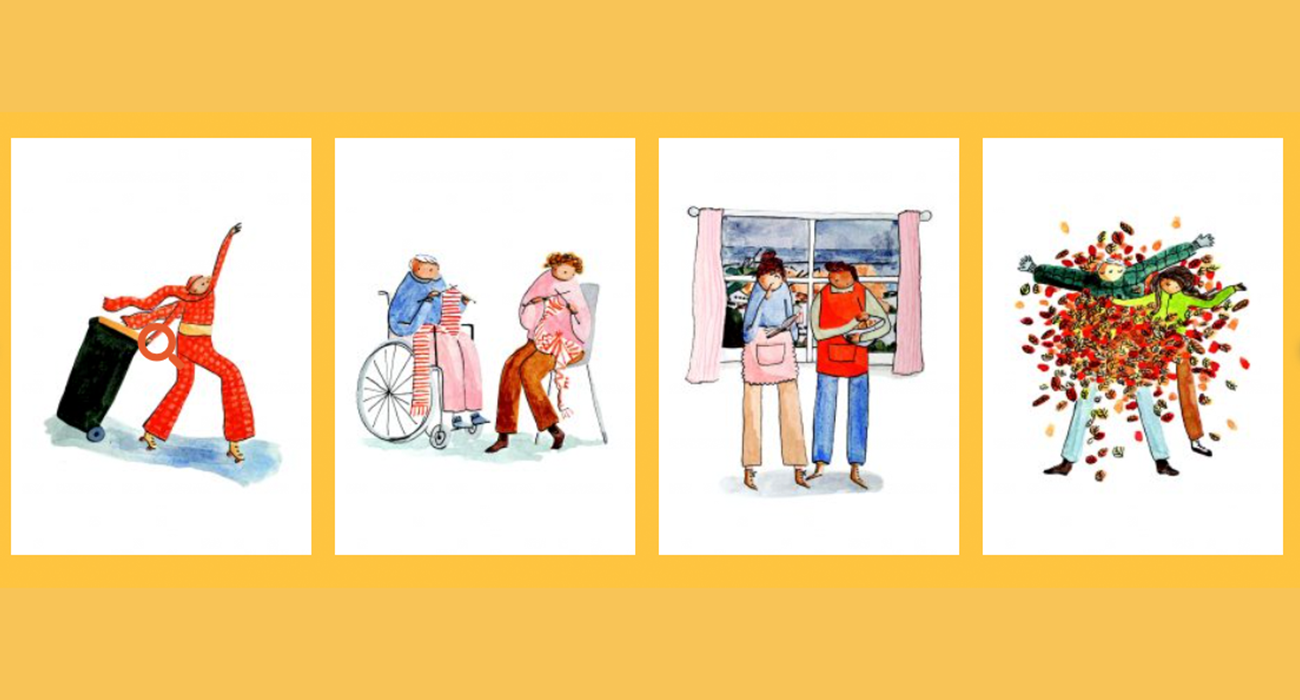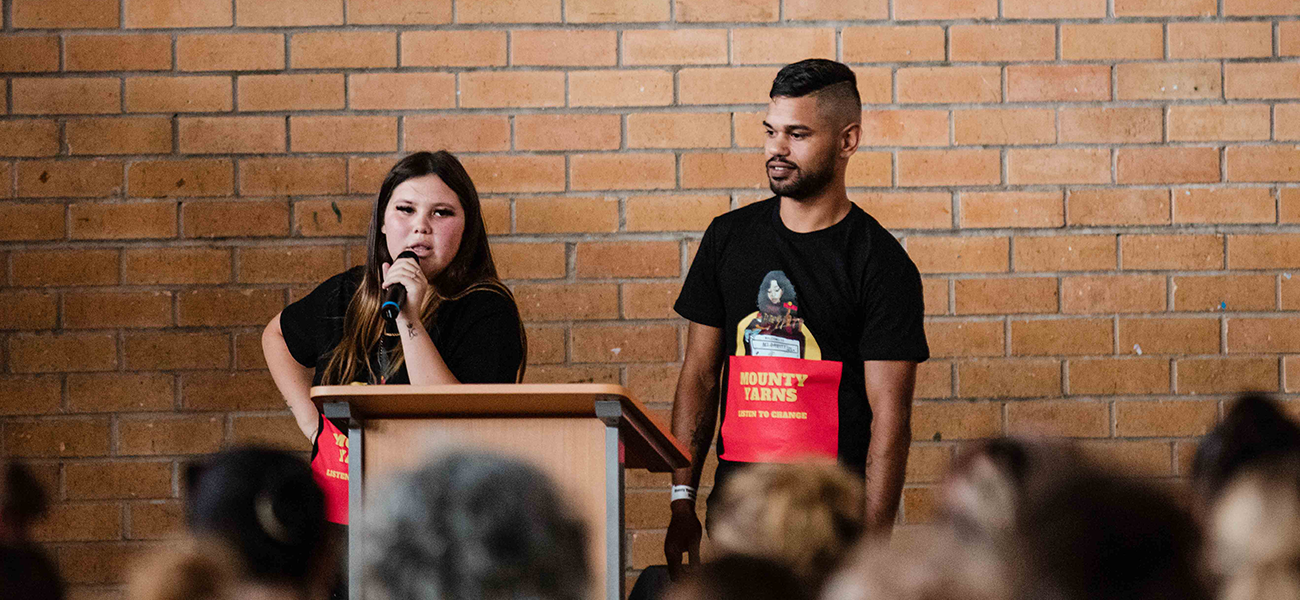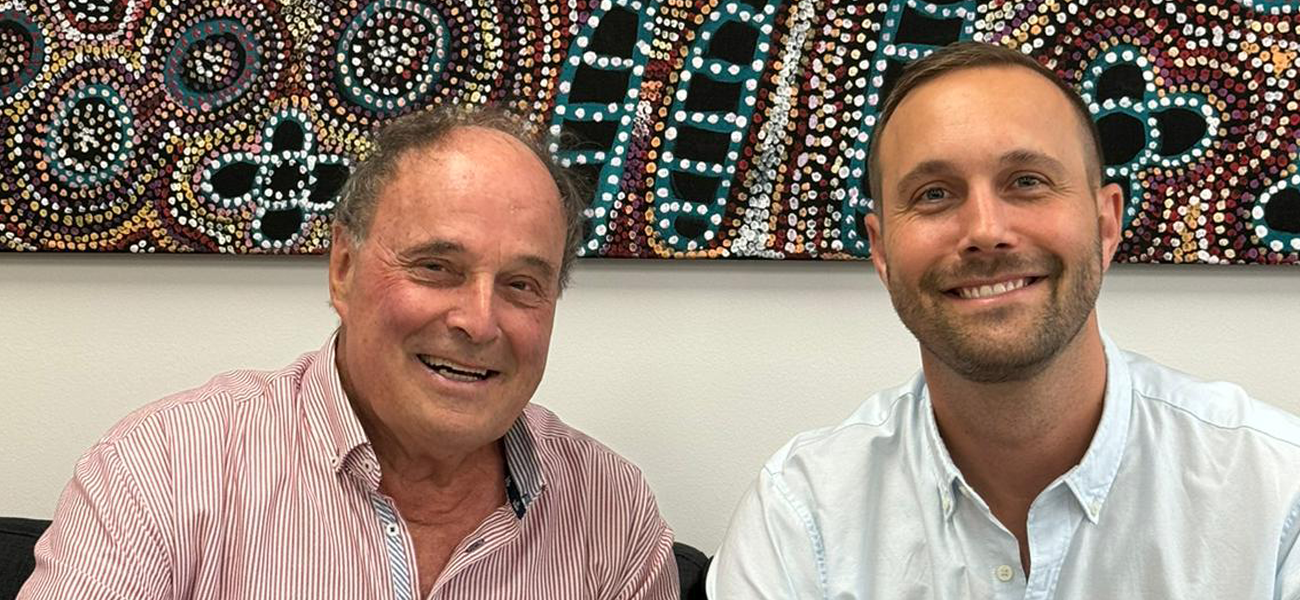Kylie is Shared Learning Coordinator at Burnie Works, a collective impact initiative creating meaningful change for Burnie. Part of her role is leading the new Burnie Local Knowledge Collector project, hence the busy whiteboard.
The project involves Burnie Works partnering with the University of Tasmania (UTAS) to co-design a suite of accredited training for community knowledge collection. Kylie says involving end-users in designing a training program is unique.
“The reason this project is so important is because systems change is all about shifting power. This will enable a pathway for community members to collect their own information, for purposes that are important to them,” explains Kylie.
“So, for us here at Burnie Works, that’s multipurpose because it’s about community narrative, it’s about community members being able to talk to people they know and on subjects they’re interested in, in a supported way.”
![]()
And then, it enables us to use what they come back with for sense and meaning-making at a community level, for collective change.
Kylie Burgess, Burnie Works
![]()
Through the project, local community knowledge collectors will be trained, equipped, mentored and re-imbursed. It will also develop understanding, measurement, evaluation and learning capability of Burnie Works itself, and contribute to the evaluation of the national Stronger Places, Stronger People initiative. Dusseldorp Forum is part of the Stronger Places, Stronger People National Leadership Group and has partnered with two other participating communities, Maranguka and Logan Together, for the past five years.
This unique approach is being used in projects with similar purposes in two Indigenous communities, but this is a first for mainstream community evaluation. It is also a tangible example of the how stories can be used to not only change the system, but also evaluate, understand and showcase that change, as explored in Dusseldorp Forum’s recent Storytelling for Systems Change report.
By drawing out stories from the community, the local knowledge collectors will support understanding of the impact of various issues, with a focus on children, families, youth, justice, employment and wellbeing. This local knowledge can then overlay information collected externally, such as population data, research and knowledge from asset and systems mapping, to bring additional insight and shape community action.
A project officer has been recruited and co-design of the UTAS training program begins in May. Then from August to December, UTAS will pilot the micro-credentialed program, though online modules and face-to-face sessions for 15 students. The project will also include ongoing supported fieldwork for collecting knowledge.
Newly appointed Project Officer, Shandel Pile, will recruit and mentor the students. She is excited about the unique opportunity the project presents,
![]()
I really see this project as critical for allowing upskilling of community to tell their story, in their words, on their terms, in order to make change for not only themselves but I’m sure for so many others.
Shandel Pile, Burnie Works
![]()
I am absolutely honoured to be trusted with the position to support community to capture their stories of triumph, strength, pain, bravery, empowerment, and elation and to project these stories as far as we can, to people and places that could make considerable difference.”
This project complements other Burnie Works initiatives, such as the deck of Survival cards illustrated by Elizabeth Braid and pictured above. The cards reflect the community’s stories of resilience and hope through the Covid pandemic.
“The information is all there in the community,” says Kylie. “We just need to empower the community to draw it out in ways that are safe and make sense to them. If you understand something, you’re more likely to engage with it and be part of the narrative and part of the collective change.”



